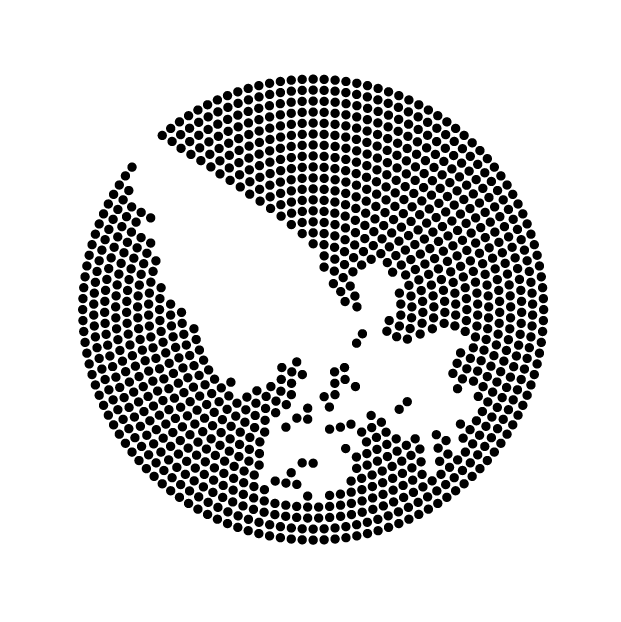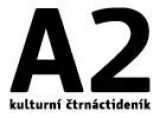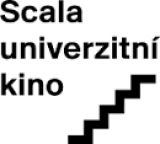2017/18
Season 43:
Eternal return — Crisis of the future
While it is possible to perceive the title of the Eternal Return season as something sinister, even undead, this may not be entirely true. The past is necessary for every society, but not as a machine generating the same solutions, but as a source of unfinished projects in search of the future. Maybe we got lost (for a while?) in the labyrinth of consumption and exchange. Perhaps the seemingly only remnant of all struggles for a better society is the nihilism and cynicism of those who have definitely seen through the possibilities of the future. Perhaps it is easier to imagine the end of the world than the end of this timelessness (capitalism). But maybe it’s all just an impulse to look for a lost future in the past. Maybe it’s an opportunity to return the topic to this generation! Boris Buden sees the disintegration of the Western welfare state in the 1970s not only as a moral problem, but especially as the problem of the loss of meaning. When solidarity disappears, the bonds between people disappear. When the bonds disappear, there is nothing to construct a common meaning against the background. Thus, things take the place of people and people objectify themselves as the products of their own economic strategies. Economics as the only logic of everything. War of all against all! So is it not high time to try to restore the meaning of society after the cleansing therapy of the eternally ironic postmodernism, isn’t it time to move on? Isn’t it time to demand a future instead of growth? So we know: meaning is permanent diplomacy, permanent negotiation, which, however, should not end with the deification of opinionlessness freeing up a navigator’s place in an uncontrolled market, but with negotiation as a search for a common direction. Neither the state nor our society is a company. The state is a dialogue! And if we desire a state to which we are to be faithful, we must desire a dialogue seeking future direction. May our season be a laboriously negotiated direction that will inspire further negotiations. Let it be understood not only as a polemic about the alleged end of history, but also as an inquiry into the aims of future art and into what our future selves should be like. The fight for perception begins. Come with us into the past to get the future. Come with us to look for what is missing!While it is possible to perceive the title of the Eternal Return season as something sinister, even undead, this may not be entirely true. The past is necessary for every society, but not as a machine generating the same solutions, but as a source of unfinished projects in search of the future. Maybe we got lost (for a while?) in the labyrinth of consumption and exchange. Perhaps the seemingly only remnant of all struggles for a better society is the nihilism and cynicism of those who have definitely seen through the possibilities of the future. Perhaps it is easier to imagine the end of the world than the end of this timelessness (capitalism). But maybe it’s all just an impulse to look for a lost future in the past. Maybe it’s an opportunity to return the topic to this generation! Boris Buden sees the disintegration of the Western welfare state in the 1970s not only as a moral problem, but especially as the problem of the loss of meaning. When solidarity disappears, the bonds between people disappear. When the bonds disappear, there is nothing to construct a common meaning against the background. Thus, things take the place of people and people objectify themselves as the products of their own economic strategies. Economics as the only logic of everything. War of all against all! So is it not high time to try to restore the meaning of society after the cleansing therapy of the eternally ironic postmodernism, isn’t it time to move on? Isn’t it time to demand a future instead of growth? So we know: meaning is permanent diplomacy, permanent negotiation, which, however, should not end with the deification of opinionlessness freeing up a navigator’s place in an uncontrolled market, but with negotiation as a search for a common direction. Neither the state nor our society is a company. The state is a dialogue! And if we desire a state to which we are to be faithful, we must desire a dialogue seeking future direction. May our season be a laboriously negotiated direction that will inspire further negotiations. Let it be understood not only as a polemic about the alleged end of history, but also as an inquiry into the aims of future art and into what our future selves should be like. The fight for perception begins. Come with us into the past to get the future. Come with us to look for what is missing!While it is possible to perceive the title of the Eternal Return season as something sinister, even undead, this may not be entirely true. The past is necessary for every society, but not as a machine generating the same solutions, but as a source of unfinished projects in search of the future. Maybe we got lost (for a while?) in the labyrinth of consumption and exchange. Perhaps the seemingly only remnant of all struggles for a better society is the nihilism and cynicism of those who have definitely seen through the possibilities of the future. Perhaps it is easier to imagine the end of the world than the end of this timelessness (capitalism). But maybe it’s all just an impulse to look for a lost future in the past. Maybe it’s an opportunity to return the topic to this generation! Boris Buden sees the disintegration of the Western welfare state in the 1970s not only as a moral problem, but especially as the problem of the loss of meaning. When solidarity disappears, the bonds between people disappear. When the bonds disappear, there is nothing to construct a common meaning against the background. Thus, things take the place of people and people objectify themselves as the products of their own economic strategies. Economics as the only logic of everything. War of all against all! So is it not high time to try to restore the meaning of society after the cleansing therapy of the eternally ironic postmodernism, isn’t it time to move on? Isn’t it time to demand a future instead of growth? So we know: meaning is permanent diplomacy, permanent negotiation, which, however, should not end with the deification of opinionlessness freeing up a navigator’s place in an uncontrolled market, but with negotiation as a search for a common direction. Neither the state nor our society is a company. The state is a dialogue! And if we desire a state to which we are to be faithful, we must desire a dialogue seeking future direction. May our season be a laboriously negotiated direction that will inspire further negotiations. Let it be understood not only as a polemic about the alleged end of history, but also as an inquiry into the aims of future art and into what our future selves should be like. The fight for perception begins. Come with us into the past to get the future. Come with us to look for what is missing!While it is possible to perceive the title of the Eternal Return season as something sinister, even undead, this may not be entirely true. The past is necessary for every society, but not as a machine generating the same solutions, but as a source of unfinished projects in search of the future. Maybe we got lost (for a while?) in the labyrinth of consumption and exchange. Perhaps the seemingly only remnant of all struggles for a better society is the nihilism and cynicism of those who have definitely seen through the possibilities of the future. Perhaps it is easier to imagine the end of the world than the end of this timelessness (capitalism). But maybe it’s all just an impulse to look for a lost future in the past. Maybe it’s an opportunity to return the topic to this generation! Boris Buden sees the disintegration of the Western welfare state in the 1970s not only as a moral problem, but especially as the problem of the loss of meaning. When solidarity disappears, the bonds between people disappear. When the bonds disappear, there is nothing to construct a common meaning against the background. Thus, things take the place of people and people objectify themselves as the products of their own economic strategies. Economics as the only logic of everything. War of all against all! So is it not high time to try to restore the meaning of society after the cleansing therapy of the eternally ironic postmodernism, isn’t it time to move on? Isn’t it time to demand a future instead of growth? So we know: meaning is permanent diplomacy, permanent negotiation, which, however, should not end with the deification of opinionlessness freeing up a navigator’s place in an uncontrolled market, but with negotiation as a search for a common direction. Neither the state nor our society is a company. The state is a dialogue! And if we desire a state to which we are to be faithful, we must desire a dialogue seeking future direction. May our season be a laboriously negotiated direction that will inspire further negotiations. Let it be understood not only as a polemic about the alleged end of history, but also as an inquiry into the aims of future art and into what our future selves should be like. The fight for perception begins. Come with us into the past to get the future. Come with us to look for what is missing!
Eyolf K antropocénu ’68 Čevengur










